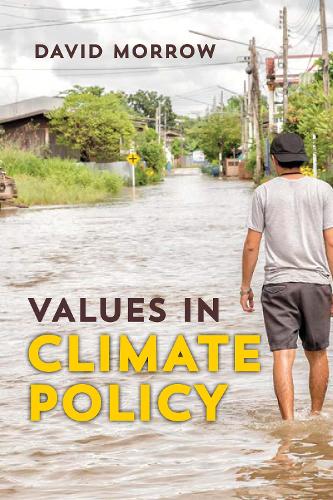
Values in Climate Policy
(Hardback)
Available Formats
Publishing Details
Values in Climate Policy
By (Author) David Morrow
Bloomsbury Publishing PLC
Rowman & Littlefield International
29th October 2019
United Kingdom
Classifications
Professional and Scholarly
Non Fiction
363.73874
Physical Properties
Hardback
278
Width 159mm, Height 233mm, Spine 26mm
599g
Description
Children born today in the Maldives may someday have to abandon their homeland. Rising seas, caused by climate change, could swallow most of their tiny island nation within their lifetime. Their fate symbolizes the double inequity at the heart of climate change: those who have contributed the least to climate change will suffer the most from it. All is not lost, however. The scale and impact of climate change depends on the policies that people choose. How quickly will we eliminate our greenhouse gas emissions How will we do it Who will pay for it What will we protect through adaptation How will we weigh the fortunes of future generations and the natural world against our own Answers to questions like these reflect a constellation of value judgments that deserve close scrutiny. In addition to providing essential background on the science, economics, and politics of climate change, this book explores the values at stake in climate policy with the aim of shrinking the gap between climate ethics and climate policy.
Reviews
An excellent introduction to the field, which should suit and engage a wide audience. At a time where the world as a whole urgently needs to get engaged with the ethics of climate change, this is a great place to start. Suitable for all interested people, across disciplines, institutions and in the public at large.
Morrow's book is the clearest and most compelling introduction available to the ethical challenges of climate change. It is morally serious, beautifully written, and brings vital philosophical insights to climate policy choices. This is a book for anyone seeking ideas for the best futures in the face of our climate crisis.
Author Bio
David Morrow studies the ethics and political philosophy of climate change and climate policy, especially the ethics and governance of climate engineering. He received a Ph.D. in Philosophy from The Graduate Center of The City University of New York and an M.A. in Public Policy from the University of Chicago. He has previously taught at Hunter College in New York City and at the University of Alabama at Birmingham.
